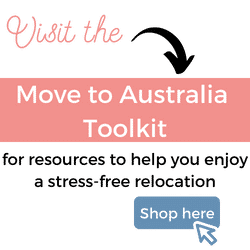This article about private health insurance in Australia is a sponsored post written by Sophie Ryan, iSelect spokesperson
Private health insurance in Australia: Do you need it?
So, you’ve taken a giant leap of faith and made the move to Australia? That’s amazing! We’re happy to have you and really hope you’re enjoying your life down under.
Now that you’re a permanent resident or new Australian citizen, have you thought about private health insurance? Maybe you have but found it all too confusing and simply gave up! We know… private health insurance can be really complicated, that’s for sure. But as you create a new life here as a true-blue Aussie, taking out suitable cover is a good thing to consider
Read on to find out why.
What if I hold a temporary visa?
If you or your family members are not yet permanent Australian residents or citizens, but still want that peace of mind that can come with having health insurance, you could consider taking out Overseas Visitors Health Cover (OVHC). This is a form of health insurance for visitors to Australia who don’t have access to Medicare. Costs, eligibility, and benefits will differ between OVHC policies, so it’s important that you do your research[1].
A quick overview of private health insurance in Australia
Firstly, private health insurance in Australia is not a case of ‘one-size-fits-all’. There are different kinds of private health cover. Some people with private health insurance have either hospital cover or extras cover, and some have both. Research commission by comparison service iSelect in 2022 revealed that 55% of Aussies surveyed have some form of private health insurance[2].
Hospital cover can help with the cost of treatment as a private patient in hospital, while extras cover can help with the costs of a range of other health services not covered by Medicare, such as dental, physio and optical.
To get private health insurance you must buy a policy from a registered health insurer and pay regular premiums to stay covered[3].
Do you really need it?
With households under increased financial pressure, you may be thinking if you can really afford to take out private health insurance. But can you truly put a price on peace of mind?
A real benefit of private health insurance is having peace of mind in case the unexpected happens. Knowing that you (and your loved ones) will have private care in the event of a serious health issue that is covered by your policy can be very comforting.
Without eligible hospital cover, you (or your family) could also be in for a lengthy wait for elective surgery, with increased waiting times in some states due to the COVID19 backlog[4]. Could you afford to wait around? Think about how it might affect your household income if your health issue was to prevent you from working.

Top tips for taking out cover for the first time
So, you’ve decided to take out private health insurance but have no idea where to begin? Here’s a few handy tips to get you started.
-
Consider your life stage
When selecting a policy, make sure it covers you for everything you need. For example, it’s important as you get older that you’re covered for things like hip replacements or cataracts – things that unfortunately become more important as you get older. If your family is still growing, you may want to consider pregnancy and IVF cover.
-
Don’t forget ambulance cover
Not all private health insurance policies include ambulance cover, so depending on the Australian state or territory you live in, making sure your policy includes this may be important as you could be left significantly out-of-pocket after an emergency.
-
Waiting periods explained
When purchasing private health insurance, make sure you are aware of any waiting periods you may have to serve. This is a period of time before you can claim some benefits and services. The length of the waiting period depends on the procedure, type of cover (like extras cover or hospital cover), and your health fund[5]. Some funds may have special introductory offers such as waiving some extras waiting periods.
-
Look for ways to get better value
To reduce your premium, you could consider opting for a higher excess. If you think you’re unlikely to be admitted into hospital in the near future, increasing the excess on a family policy from $1000 to 1500 could save a family up to $350 a year[6].
Also, the way you pay could make a difference to how much you pay. Some funds offer a discount for paying by direct debit rather than credit card.
And remember, don’t fork out money for extras cover if you don’t think you’ll use them. Consider hospital cover only, which could work out cheaper.
-
Help is out there
Don’t forget you’re not alone. Surely you have better things to do with your time than spending hours comparing different health insurance policies, especially now that the culture shock has worn off, right? A comparison service such as iSelect can help you.
Finding cover that suits you or your family depends on individual needs, circumstances, budget and life stage. Instead of doing all of the work yourself, we can help you find a suitable level of cover by comparing policies from a range of providers*.
Disclaimer:
*iSelect does not compare all health insurance providers or policies in the market. The availability of policies will change from time to time. Not all policies available from its providers are compared by iSelect and due to commercial arrangements, your stated needs and circumstances, not all policies compared by iSelect are available to all customers. Some policies and special offers are available only from iSelect’s contact centre or website. Click here to view iSelect’s range of providers.
[1]Source:https://www.privatehealth.gov.au/health_insurance/overseas/overseas_visitors_health_cover.htm#:~:text=Overseas%20Visitors%20Health%20Cover%20(OVHC)%20is%20a%20form%20of%20health,require%20medical%20or%20hospital%20treatment
[2] Source: iSelect commissioned i-Link Research to conduct a national online survey between 1st and 9th of February 2022. The sample is n=1,500 Australians 18+ years, with data weighted to represent the population by age, state and gender, and is representative of all Australian adults 18+
[3] Source: https://www.health.gov.au/health-topics/private-health-insurance/about-private-health-insurance
[4] Source: https://www.aihw.gov.au/news-media/media-releases/2021/january-1/public-hospitals-worked-to-clear-elective-surgery & Plan needed to tackle big backlog of essential operations | Australian Medical Association (ama.com.au)
[5] Source: https://moneysmart.gov.au/health-insurance
[6] Source: Private health insurance reforms: Increasing voluntary maximum excess levels
This post about private health insurance in Australia was provided by iSelect.
















